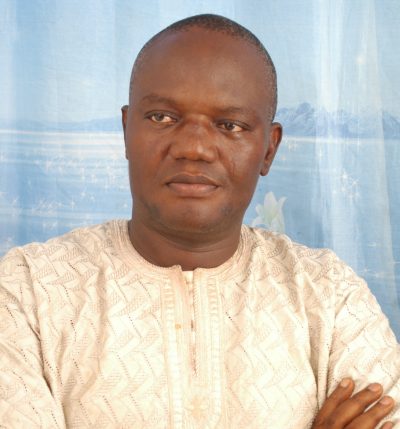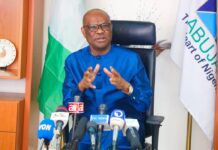When sometime in 2008, the late Yinka Odumakin invited me to his 23, Sylvia Crescent, Anthony Village-office in Lagos, little did I know that a big surprise was waiting for me. A fine gentleman with a consistent commitment to the progressive bent, Odumakin had offered to pay me a visit but since it was unYoruba for leaders and elders to initiate the kind of visit he was envisaging, I opted for the opposite. And there I was, face-to-face, with the inimitable Odumakin and the irresistible Jimi Agbaje, aka JK. One thing led to another and I eventually became the pioneer Administrative Secretary of the Afenifere Renewal Group (ARG), under the national chairmanship of Olawale Oshun.
Notable members of the prestigious Group included Ayo Afolabi, former Governor Kayode Fayemi of Ekiti State, Babafemi Ojudu, Bisi Adegbuyi, Oye Oyewumi, Lai Oyeduntan, Olutola Mobolurin, Ademola Oyinlola, Tokunbo Ajasin, Jumoke Anifowose, Biodun Oyebanji, Zacch Adedeji and Agbaje. Among others were Kunle Famoriyo, Ropo Sekoni, Charles Akinola, Adedamola Dada and the now-deceased former Deputy Governor Funmilayo Olayinka of Ekiti State (1960 – 2013), Dipo Famakinwa (1967 – 2017), Bayonile Ademodi (1952 – 2020) and, of course, Odumakin (1966 – 2021).
On March 26, 2024, Oshun clocked 74 years on the Planet Earth and a group of intellectuals in the Southwest under the leadership of Professor Lai Olurode converged on his Ijebu-Imushin country house in Ogun State to honour this man of many parts with a Roundtable Discussion on the Governance Crisis in Nigeria.
Oshun has done well and he deserves to be celebrated. He has paid his dues but then, only an ungrateful heart would also say that God has not been good to this delightful ideologue of the All Progressives Congress (APC) bent. So, he has no reason to complain! Author, journalist and farmer, he’s a former Chief Whip of the Federal House of Representatives and prominent member of the defunct National Democratic Coalition (NADECO). He was also a close ally of the late MKO Abiola, the winner of the June 12, 1993 presidential election. As a matter of fact, Oshun was reportedly one of the few, prominent faces at the historic Epetedo Declaration on June 11, 1994. ARG under Oshun’s leadership produced the Development Agenda for Western Nigeria (DAWN) Strategy Roadmap which led to the formal inauguration of DAWN Commission by the Southwest governors in July 2013.
It is important to note that ARG was formed “with the stated intent of reuniting the feuding factions” in Afenifere and as “a necessary body to preserve the ethnic identity of the Yorubas.” If one may therefore ask, how smooth has the journey of hope which the Group brought to the Yoruba race with its formation been and how many of its founding philosophical objectives have been realized? Looking around today, the mainstream Afenifere has become more of a wrong noise than communal togetherness. While one faction, led by Reuben Fasoranti, is obviously looking in the direction of ‘E lo f’okan bale’, the other, headed by Ayo Adebanjo, is excruciatingly Obidient-compliant. Since the guardians of society are either dead or deep in slumber, Yoruba people have become deeply divided and that’s to our collective hurt!
Beyond its sequined glint, Yorubaland had expected Afenifere to serve as a very powerful research institution like the Chatham House in London. Though ARG has done one or two things along this line, it is unfortunate that what we now have is more of interest-leaders and self-servers who have developed an unsatisfying urge for political slots for their children and concubines thereby leaving the children of the poor with no future! And they have succeeded in doing that! And nobody, except the Stone of Israel, can put an end to it!
In the days of Obafemi Awolowo, Adekunle Ajasin and Abraham Adesanya, the fear of Afenifere was the beginning of wisdom for any governor who wanted to access relevance in the zone, even beyond. How come that has faded away so soon? Where did the rain start beating the Yorubas and who are the giants and strongholds who want Yorubaland to not remain even stagnant but speedily moving backward? Has the Yoruba race arrived at the desired shore and what’s the opium keeping the actors in deep sleep? Is the Yoruba progressive corporate world the way it should be? What efforts has Afenifere made to reverse the pains of the grinding penury in the midst of stupendous plenty that has now sadly become the lot of Western Nigeria? In the sincerity of his heart, would Awolowo have abandoned his people to their fate without proffering urgent, comprehensive and soul-saving solutions at a time like this?
Agbonmagbe, now Wema Bank (1945)! Western Nigeria Development Corporation, WNDC (1949)! The Nigerian Plastic Company Limited (1954)! Western House (1958)! Western Nigerian Government Broadcasting Corporation, WNTV (1959)! Liberty Stadium (1960)! University of Ife (1961)! Cooperative Bank (1961)! Cocoa House (1964)! Lapal House (1978)! And many others! Whereas some leaders have been in charge of the destiny of Yorubaland for more than two decades with next-to-nothing to show for it, what Awolowo and his colleagues did with a shorter reign is what the children of Oduduwa have got as their inheritance till date. It is therefore unfortunate that successive leaders have only been feeding fat on the labour of these heroes past!
Also, time was when the media space was controlled by the Southwest. Now, the zone is almost nowhere to be found on the media map. In the Banking sector, not much is happening! In the political space, the North has not lost its grip; and, in Agriculture, it has lost touch. But for Amotekun, the security situation in the Southwest would have been worse! So, what’s happening?
If we want to talk about Afenifere, we have to go back to the treaty that ended the Kiriji War and the formation of the West African Students Union (WASU). The foundation of Egbe Omo Oduduwa by Awolowo was a spinoff of WASU and it put together a level of work which led to the manifesto of the Action Group, ‘Life more abundant’; and it made a difference because we’re not just talking about ‘Free Education’ which was the centerpiece but also the formation of the development financing institutions such as the WNDC, Western Nigeria Finance Corporation and Western Nigeria Housing Corporation, established in 1958. Yoruba leaders at the time followed the paths already embarked upon by the Brazilians. Of course, that’s why Brazil is not looking for foreign investments. Brazil established the Brazilian Bank for Sustainable Development (BNDES) in 1952 and it’s now about the most powerful financing agent for development in the world. Every year, Brazil recapitalizes BNDES with about 1% of her foreign earnings. That’s why the Bank, according to the Financial Times of London, can give loans with up to 50 years tenor. Impliedly, a capitalized WNDC or Cooperative Bank would have made Olokola Deep Seaport in Ondo State the best outside of Freetown.
Again, that a Yorubaman is Nigeria’s president does not mean the race should go to bed and start snoring! Already, the noise in town is that too many appointments are in the hands of the Yorubas and that it is because the president is of the Southwest extraction. So, let Afenifere visit Awolowo’s grave with a view to atoning for its sins before it’s too late. There and then, it should tie up with institutions like the Pension Fund to embark on serious capital projects that can give loans of up to 30 years tenor. But, wait a minute: what have been the roles of the Ministries of Regional Integration in the six states that make up the Southwest? If they have an agenda for DAWN, why can’t they go back to it?
*To be continued.




